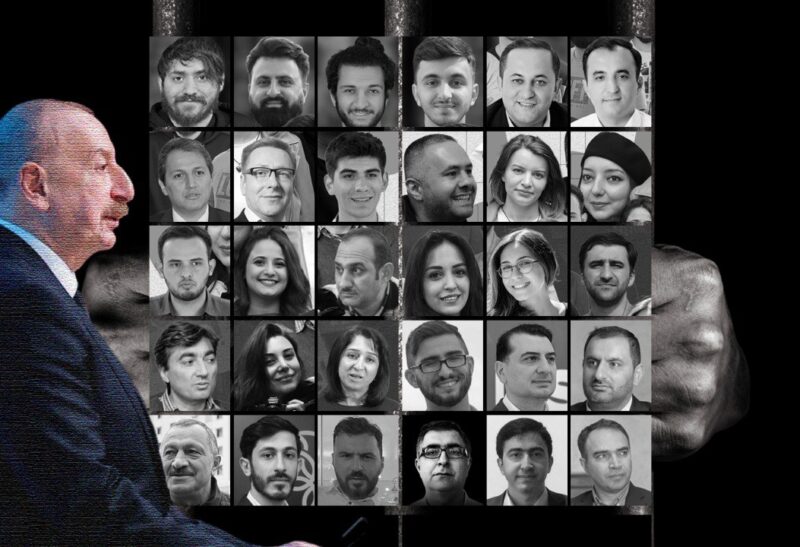The crackdown on anti-war activists began with the summoning of social activists to the State Security Service on September 19, followed by arrests of young individuals who publicly opposed the war. These activists have been detained and sentenced on charges related to their social media posts and public opposition to the conflict.
Amrah Tahmazov, a social activist known for expressing anti-war views on his social media account, was arrested and subsequently sentenced to 30 days of administrative imprisonment by the Barda District Court. The charges were filed under disseminating prohibited information in information storage or information-telecommunication networks. Remarkably, it is claimed that this decision was made at the request of the General Prosecutor’s Office, and Tahmazov was reportedly involved in the process.
Tahmazov had posted on his Facebook page about being summoned to the General Prosecutor’s Office just hours before his sentencing. The swift proceedings from the prosecutor’s office to the courtroom have raised questions regarding the timing and transparency of the legal process.
Nemet Abbasov, another outspoken public activist against the war, faced a similar fate. He was arrested and sentenced to 30 days of administrative imprisonment by the Narimanov District Court under charges of disobeying a lawful police request. Abbasov’s detention occurred shortly after he reported that the police had been searching for him.
Journalist Nurlan Kahramanli, known as Libre, faced a similar fate when he was taken from his home in Sumgayit on September 21. He was subsequently sentenced to 30 days of administrative detention by the Yasamal District Court. Kahramanli was charged for sharing information prohibited from dissemination on information storage or information-telecommunication networks. The journalist’s wife, Asli Kahramanli, reported that her husband was forcibly taken away by individuals in civilian attire who did not disclose his whereabouts. He was initially taken to the Sumgayit City Police Department and later to the General Prosecutor’s Office.
Kahramanli alleged that he was threatened when summoned to the State Security Service on September 13, with a request to cease his anti-war posts on social media. His subsequent detention and imprisonment drew international attention, as he reported being subjected to violence during and after his arrest.
Despite protests from Kahramanli’s lawyer, Elchin Sadigov, and assertions that there was no prohibited information in his social media posts, the Baku Appellate Court upheld the 30-day arrest warrant. The detention of Nurlan Kahramanli has been widely criticized as a violation of freedom of speech and expression.
The recent wave of arrests of anti-war activists in Azerbaijan has raised concerns about the state of civil liberties and freedom of expression in the country, with activists and journalists facing punishment for their opposition to the war and their online posts. Legal proceedings and allegations of violence during detention have further deepened these concerns.



